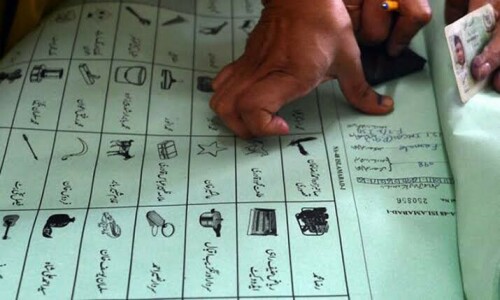While street protests led by the PTI and PAT have brought governance to a standstill in the red zone, a similar effort is being led online by a network of hackers, or ‘hacktivists’ who claim to be independently seeking the ouster of the PML-N government and accountability for the Model Town tragedy.
The hackers — a local chapter of global hacktivist network Anonymous — have attacked hundreds of local websites belonging to the government, media and security forces.
The weeklong campaign rendered many sites temporarily inaccessible through denial of service attacks, many pages defaced, and worryingly, private data records of government employees and security forces leaked online.
Also Read: 'Anonymous Pakistan' take down government sites, leak bank records
While the role that hacktivism and online data leaks play in exposing corruption and human rights violations has been applauded worldwide thanks to the efforts of WikiLeaks and Edward Snowden, the ongoing hacking spree targeting local sites is hardly worthy of praise.
Leaving aside the question of who is behind the attacks, who the targets are and the questionable timing, the justification of ‘taking down the system’ in the public interest does not translate to leaking thousands of bank records, names, contact information and CNICs of government officials and security personnel unrelated to the political crisis.
By exposing the names, addresses and contact information of police officials, the hackers have potentially put lives at risk.
By releasing personal bank records of government employees, a massive breach of privacy has occurred.
By releasing data dumps of the army and ISPR websites, including names, contact information, usernames and passwords, a potential threat to national security has arisen.
If those undertaking this hacking campaign are doing so under the misguided notion that they are raising political awareness, the attacks could at best be labelled mischief with unintended but potentially dangerous results.
Also Read: 'Anonymous Pakistan': Hacking spree continues, PTI sites targeted
However, the possibility of this effort being something more cannot be ignored. In either case, the state must act beyond restoring broken sites, blocking online access to the data leaks and changing passwords.
The new Prevention of Electronic Crimes Bill has been in limbo for over a year.
The FIA has often said it is unable to act on cybercrime except in the case of influential persons, or those crimes that fall under the inadequate Electronic Transactions Ordinance, 2002.
The PTA blindly follows the orders of a shadowy Inter-Ministerial Web Evaluation Committee.
This is a case that requires governance and state action for the public good, and not for short-sighted political gains in cyberspace.
Published in Dawn, September 9th , 2014














































